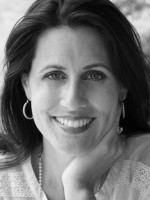Classical Knowers: An invitation for Science to Come Back to the Table

Last year’s Circe conference began with the telling and interpreting of our dreams. In the opening session, we were read, with Old Testament drama, the very longings of our souls. Andrew Kern called out to the Glory that resides within each of us and interpreted the longings we each have for Glory- for the One whose train fills the temple. We were challenged on how to lead, to teach, to assess well, and to live glory soaked lives. We went home with suitcases stuffed with books and new friends in the pockets of our hearts. Yet one thing conspicuously missing was the specific equipment and inspiration those of us who return to teach in science classrooms this fall still seek. Of course, there is always the universal truthfulness of the liberal arts themselves, found in each breakout session, and we are free to glean from and apply these universals to our specific disciplines. And there were specific offerings as well, such as when I attended Adam Andrews’ talk on the perils and pitfalls of the traditional grading system for literature, where he offered an alternative, honed tool for verification of student work. Though tailored for teachers of literature, I found that I could apply it to the science classroom as well. The three-step writing assignment he so skillfully laid out for us mirrored almost exactly the steps of Claim-Evidence-Reasoning that I have been wanting to embrace more with my Biology students.
When asked why science had not been invited to our lovely conference, it was inferred that it had not been invited because of its failure to behave well in the past. Truth be told, it wasn’t really a failure to behave but rather its blatant misbehavior—essentially that of claiming Glory for itself—that had excommunicated science from a seat at the feasting table. And I understand. No one likes an unruly guest, and anyone making false truth claims usually gets shown the door. In the case of science, we are all to blame for its misguided behavior, for we (society as a whole) have elevated it to the level of a mighty trump card. When there is disagreement, some may be quick to say, “That is not backed up by science” and we all nod along sagely while never really inquiring whether the thing IS or ISN’T scientific fact or whether science has a say in it at all. The problem lies in the way we have allowed science to be defined. Exercising it’s own little transgender revolution, science has deigned to change its own pronoun, and the world has been happy to play along.
Science (the artist formerly known as natural philosophy) was embraced as the darling of the enlightenment and the age of reasoning when our very ability to KNOW became validation for our existence. Cogito ergo sum. Suddenly we were no longer mere creatures, but we became identified as knowers, and that made us like God.
Proverbs 6:2 reminds us that only “The Lord gives wisdom and from His mouth come knowledge and understanding.” God is still our source for all knowing, and science merely a means toward knowing if rightly employed. In actuality, we must not and cannot depend upon science. It is not a constant but, rather, is constantly changing as our understanding changes, as we find better means of observing, better lenses through which to see the world, more reliable systems of fossil dating, and better questions to ask. It is useful but not always dependable. For example, if we have a disease, we don’t want to depend upon the science of 50 years ago in order to treat that disease. If we did, we would still be sending people into the country to treat tuberculosis rather than giving antibiotics or have half the population quarantined with malaria rather than realizing it results from the bite of an infected mosquito, not transferred person to person.
We must realize that science is merely a method. It is a means of pursuing information and forming theories and thinking through observation and experimentation. Science is not Truth itself, yet, it can be a tool on our path toward understanding the truth of creation and, thereby, the Creator. I teach my students that science is the constant search for more accurate information. The definition itself excludes science from ever being an absolute truism because of its changing and un-absolute nature. Yet to our modern sensibilities, we have equated science with truth, and when we say something is backed up by science, we almost always mean by what is true. This is a danger.
Yet little by little, we can reclaim the sciences, but from whom? I would submit not from the world but from our own selves. The only real enemy is our own failure to define it accurately and call it by its rightful name- to embrace it and to teach it as a means toward knowing, toward understanding, to organize and apply it as an art and a skilled methodology. It must be invited to sit with its other brothers in the classical canon. Biology, Chemistry, Physics, and their branches must all be invited in and re-adopted. In our classical teaching of the sciences, we impart observational skills, claim formations, citation writing, comparisons, and reasonings. There are refutations and amplifications to be made and conclusions to be drawn. In fact, executing the art of science well is really no different a piece of rhetoric than a well-formed Lost Tools of Writing essay.
I offer this as encouragement to myself and other teachers employed in the philosophy of science. It is part of the human experience and human formation. All manner of subjects may be taught well when historically understood, classically approached, and holistically integrated with the other humanities. I plan to start my school year with Hopkin’s ode to Biology- Pied Beauty. We will draw in our science notebooks and write claims with both evidence and reasoning to each of the essential questions in our science curriculum for the year. We will have socratic discussions and present rhetorically to one another. We will observe, experiment, and draw conclusions. We will be classical knowers—a.k.a. scientists. But I could really use some encouragement and help and a forum in which to discuss how to do this better. So, at next year’s conference, please invite science. I know she will come.

Jessica Deagle
Jessica Is a life-long learner and educator. After home schooling her three children for nine years and teaching parent practicums for Classical Conversations, she now teaches Rhetoric and Literary analysis at Oak Hill Classical School where her three children attend. She can speak well in to the life of the home school parent as well as the classical school parent and brings 13 years of experience in the world of classical education to this webinar. Now with three teenagers in the house, she speaks to moms with littles as well as moms with older kids. One of her passions is learning how to build a beautiful and intentional home life for herself and her family.










